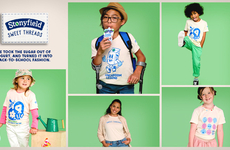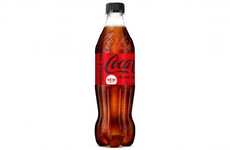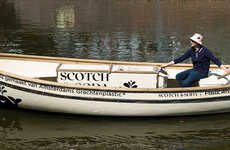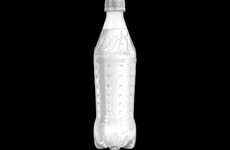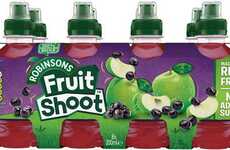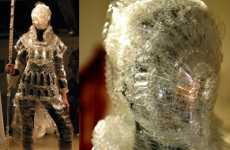
Recycled Bottle Blazers
References: schoolcolours & treehugger
Schools in the UK can now dress their students in a uniform made entirely from old Coca-Cola bottles, which will help them meet their carbon footprint targets.
New advances in flaking, chipping and spinning plastic at a plant in Taiwan have made "blazers with bottle" commercially viable.
According to Mark Southcott, of the Knaresborough company School Colours, which has tailored the first order of the new material from Taiwan, the jackets and trousers look and feel like any manmade fibre clothing.
The uniform costs about £1 more than conventional ones. Many schools with more than 1,500 students have already placed orders.
Uniforms are just the first step, Southcott is working on extending the concept into sportswear.
Check out another recycled-bottles product:
New advances in flaking, chipping and spinning plastic at a plant in Taiwan have made "blazers with bottle" commercially viable.
According to Mark Southcott, of the Knaresborough company School Colours, which has tailored the first order of the new material from Taiwan, the jackets and trousers look and feel like any manmade fibre clothing.
The uniform costs about £1 more than conventional ones. Many schools with more than 1,500 students have already placed orders.
Uniforms are just the first step, Southcott is working on extending the concept into sportswear.
Check out another recycled-bottles product:
Trend Themes
1. Recycled Uniforms - The rise of recycled uniforms presents an opportunity for eco-friendly innovation in the fashion and textile industries.
2. Circular Fashion - Circular fashion, which involves using sustainable materials and designing for reuse, repair, and recycling, can disrupt the fast fashion industry and decrease textile waste.
3. Sustainable Manufacturing - The development of new technologies for flaking, chipping, and spinning plastic can enable more sustainable manufacturing practices across industries.
Industry Implications
1. Fashion Industry - The fashion industry can explore recycled materials, circular fashion, and sustainable manufacturing practices to reduce its environmental impact and meet consumer demand for eco-friendly fashion.
2. Textile Industry - The textile industry can capitalize on the trend of using recycled materials and circular fashion to create new products and meet sustainability goals.
3. Education Industry - The education industry can incorporate sustainable practices, such as using recycled materials for uniforms, into their operations to reduce their carbon footprint and set an example for their students.
2.9
Score
Popularity
Activity
Freshness



